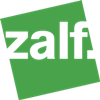The ZALF Communications website provides access to conference websites and scientific collaboration portals.
Web Presences
AGRECO4CAST is co-designing a standardized assessment framework for Living Lab (LL) innovations to support the integration of agroecological principles in agroforestry landscapes with perennial cropping systems such as vineyards, olive groves, and fruit orchards across Europe. The project combine agroecological co-creation with process-based modeling and stakeholder-driven impact assessments, supported by artificial intelligence (AI) and a digital round table (DRT).
The AgroScapeLab Quillow (ASLQ) has been established to bring together different disciplines and research activities in order to elucidate complex landscape dynamics as a necessary prerequisite to meet current and future global change challenges.
SusWEF aims to provide scientific support to the introduction of water and energy-saving irrigation technologies in Uzbekistan. Embedded within the WEF (Water–Energy–Food) Nexus, this project aims to investigate interdependencies between water and energy consumption in dryland areas of Uzbekistan. Geared towards soil rehabilitation and climate adaptation, the goal is to develop methods and recommend measures for technological and economic planning of modern irrigation technologies – primarily drip and sprinkler irrigation – as well as influence policy decisions towards taking socio-economic aspects into account.
Climate change is leading to an increase in extreme weather events, which are endangering global food production. Abiotic stress factors like floods and droughts reduce yields and make crops more susceptible to pathogens and herbivores. Against this background, the project will investigate the functional relationships between plants and mycorrhizal fungi, in particular the volatile organic compounds (VOCs) they emit, which are important for communication between plants and for protection against herbivores.
patchCROP ist ein experimenteller Ansatz für ein multifunktionales und nachhaltiges Anbausystem.
Das Landschaftslabor dient als Plattform für die Untersuchungen von abiotischen und biotischen Effekten und Interaktionen neu angelegter, kleinstrukturierter Feldeinheiten und insbesondere auf die Flächenheterogenität abgestimmter Fruchtfolgen und Bewirtschaftung.
Satellitengestützte Information zur Grünlandbewirtschaftung - Satellite-based Information for grassland management
The Global Microlysimeter Network provides a dataset of N leaching dynamics in conjunction with local weather data to crop, soil or agro-ecosystem modellers. Global coverage of major soil–climate combinations assures that models will be made fit-for-purpose for ubiquitary simulations of N mineralisation as a precondition of successful predictions of crop growth and N emissions across environments.

